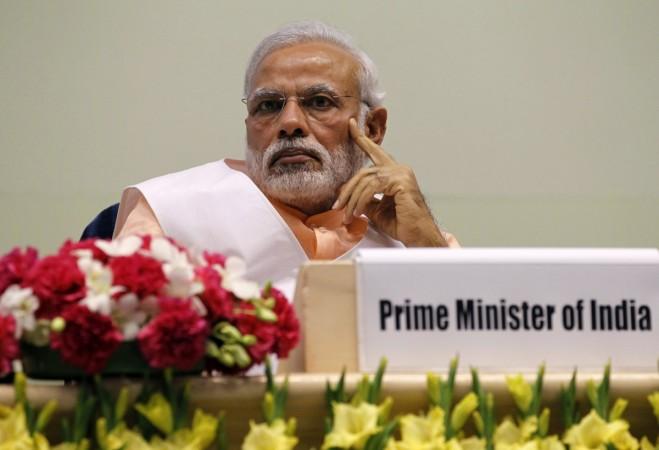
Highlighting the achievements of his government in the first year, Prime Minister Narendra Modi drew focus on higher growth and easing inflation, but experts see Modi facing challenges on both the fronts in the coming months.
In the past one year, inflation has declined sharply owing to a 50% fall in global crude oil prices. A measure of retail inflation eased to 4.87% in April from 5.25% a month ago, mainly led by a decline in food prices.
But crude oil prices have already rebounded by 50% from their lows in January. Reacting to an increase in crude oil prices, the oil companies have announced a steep hike in petrol and diesel prices in the two consecutive reviews in May.
Unseasonal rains witnessed in February and March this year have already been weighing on the food prices.
A survey by industry body Assocham released on Thursday showed that the prices of fruits have gone up 40-45% in metros and major cities as a result of unseasonal rains. The survey also saw a rise in prices of brinjal, onion, cucumber and tomato, NDTV Profit reported.
The inflation picture will worsen if the country witnesses a below-normal monsoon rainfall as predicted by the Indian Meteorological Department (IMD).
Uptick in inflation will have significant bearing on Modi government going into assembly elections in Bihar. Bharatiya Janata Party (BJP) has to win the Bihar elections in order to increase its numbers in the Rajya Sabha.
Bihar's assembly polls will have an impact on the government's reforms agenda, said Bank of America Merrill Lynch in a note.
The government has been forced to delay the landmark Goods and Services Tax (GST) Bill until at least July, after facing strong opposition in the Rajya Sabha, where it does not have a majority.
Concerns also remain on the growth front although the official data showed the country had witnessed an impressive gross domestic product (GDP) growth of 7.5% in October-December quarter.
Domestic companies have posted disappointing earnings for the March quarter that does not match the upbeat headline GDP figure. Industrial production is at five-month low, exports are declining for five months in a row and bank credit offtake remains at two-decade lows.
Going forward, a major concern for the Modi government will be a possible slowdown in growth in the current fiscal year, as many economists remain doubtful over Finance Minister Arun Jaitley's expectation of 8-8.5% GDP growth in FY16.
India's GDP growth will slow to 7.1% in FY16, said Ritika Mankar Mukherjee, economist at Ambit Capital.
Any sign of slowdown in the economy will lead to massive capital outflows from the country weighing on the rupee, which has been steady after the NDA government, led by Modi, came into power in May last year.

















